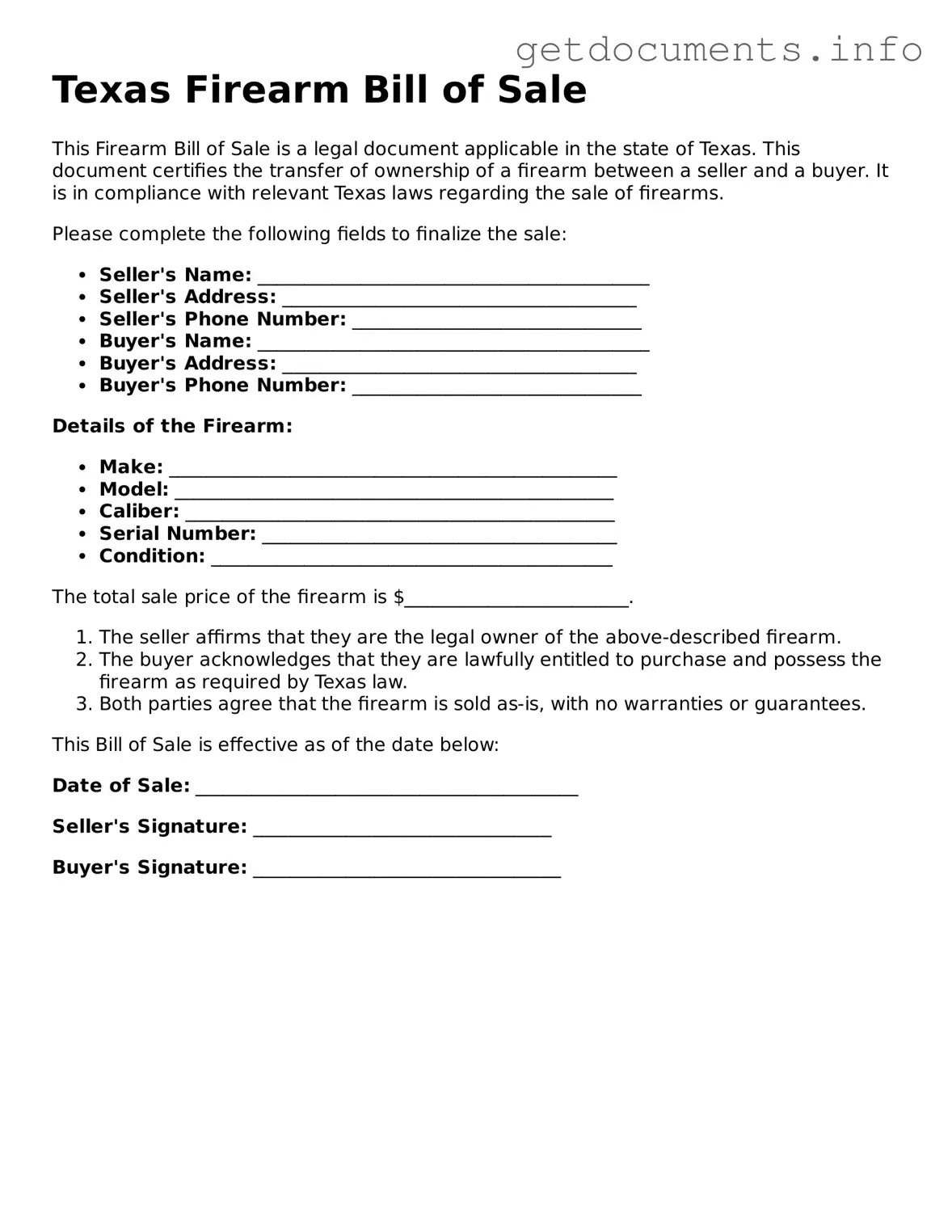Free Firearm Bill of Sale Template for Texas
A Texas Firearm Bill of Sale form is a legal document that records the sale or transfer of a firearm between two parties. This form serves as proof of the transaction and includes essential details about the firearm, such as its make, model, and serial number. Ensuring this document is completed accurately is important for both the buyer and seller to comply with state regulations.
To fill out the form, please click the button below.
Access Firearm Bill of Sale Editor

Free Firearm Bill of Sale Template for Texas
Access Firearm Bill of Sale Editor
Got places to be? Complete the form fast
Fill out Firearm Bill of Sale online and avoid printing or scanning.
Access Firearm Bill of Sale Editor
or
⇩ PDF File
